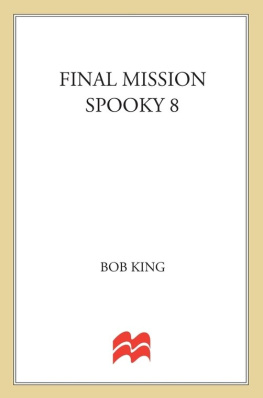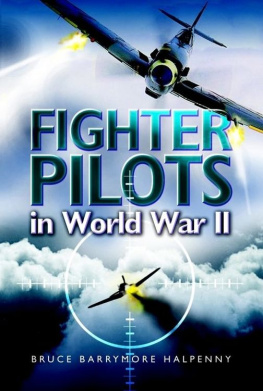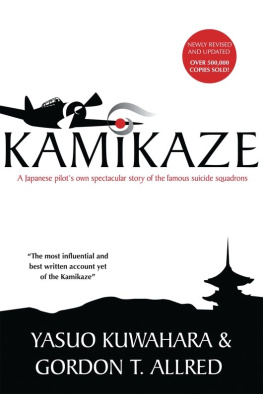THE AMERICAN MILITARY EXPERIENCE SERIES
John C. McManus, Series Editor
The books in this series portray and analyze the experience of Americans in military service during war and peacetime from the onset of the twentieth century to the present. The series emphasizes the profound impact wars have had on nearly every aspect of recent American history and considers the significant effects of modern conflict on combatants and noncombatants alike. Titles in the series include accounts of battles, campaigns, and wars; unit histories; biographical and autobiographical narratives; investigations of technology and warfare; studies of the social and economic consequences of war; and in general, the best recent scholarship on Americans in the modern armed forces. The books in the series are written and designed for a diverse audience that encompasses nonspecialists as well as expert readers.
Copyright 2011 by
The Curators of the University of Missouri
University of Missouri Press, Columbia, Missouri 65201
Printed and bound in the United States of America
All rights reserved
5 4 3 2 1 15 14 13 12 11
Cataloging-in-Publication data available from the Library of Congress.
ISBN 978-0-8262-1948-0

This paper meets the requirements of the American National Standard for Permanence of Paper for Printed Library Materials, Z39.48, 1984.
Design and composition: Jennifer Cropp
Printing and binding: Thomson-Shore, Inc.
Typefaces: Minion, Chicago Copperplate, and Brush Script
ISBN: 978-0-8262-7267-6 (electronic)
This book is dedicated to World War II airmen, of all nationalities, who fought their countries' battles in the sky.
Acknowledgments
This is the most terrifying part of publishing: acknowledging that the writer is not the lone ranger in the process, while fearing that someone who contributed will be left out.
Obviously, this could not have been written without the collaboration and cooperation of Lee Lamar. His collection of artifacts and his recollection of events is remarkable, and so was his enthusiasm for answering my hundreds of questions over the course of writing the manuscript. He was patient to a fault, and his insistence upon accuracy regarding each detail was a reminder of the task facing historians. Luka Bekic and the staff of the Hrvaska Conservation Institute literally unearthed the story while excavating another, older, story in the Istrian peninsula of Croatia. Without the curiosity and the perseverance of these men of science, a huge part of this tale would not be known; without their generosity and goodwill, it could not have been told.
Park University also needs to be in the spotlight. Without the generous monetary assistance in making the trip to Croatia, this story would not have been possible for me to write. A huge thank you to Olga Ganzen and Angie Markley-Peterson for their aid in setting up the trip and the class for Park Students. Park's former president, Beverly Byers-Pevitts, also was very supportive, and without her embrace of the project it could not have gone forward. Current Park president Mike Droge has been helpful in ensuring that I had time from my teaching to write this. I am deeply grateful to my colleagues Jane Wood, Virginia Brackett, and Steve Atkinson for their suggestions regarding several chapters of this work, and I appreciate the organizational skills of Cathy Boisen.
Several individuals and organizations were instrumental in bringing this book to completion. The Collings Foundation was very generous, inviting Lee and me to fly aboard the last remaining B-24J, from Colorado to Missouri, and allowing us to film inside the bomber while it was down for repairs in Kansas City. Members of the Commemorative Air Force, Heart of America Wing, were helpful in making available a number of volumes pertinent to this project. Lynn Gamma, at the Air Force Historical Research Agency at Maxwell Air Force Base, was gracious and prompt in sending me information from the archives of the 460th Bomb Group.
John Brenner, project editor at the University of Missouri Press, and John McManus, editor for the American Military Experience series, have been enthusiastic supporters, and both made very helpful suggestions for improving this account of Lee Lamar and his combat air crew. I very much appreciate their expertise, as well as the patience, professionalism, and unfailing good cheer of my copy editors, Sara Davis and Tim Fox.
Of course I need to thank the memory of my parents, Carl and Joan, for planting the seeds of passion about World War II. Dad was in the 8th Air Force stationed in England, where he met and married my mother before bringing her to the states. I miss their stories.
My wife, Jeanette, has been a supportive and helpful partner in this endeavor, always calmly coming to my aid each time a computer appeared to have swallowed whole my manuscript. I cannot thank her enough.
Despite my best efforts, surely mistakes have found their way into this book. I take full responsibility for those, while hoping they are few and minor.
Introduction
World War II was the age of death from above. Although in the earlier global war now called World War I stirring aerial combat among nimble fighters and the occasional bombing attack on cities were widely reported, the war of the 1940s was breathtaking in the employment of aircraft in the strategic decision to destroy the will and production facilities of opposing countries. That decision came with a high price, not only for those who were in the bullseye of bombing targets, but for the young men sent aloft in the service of their countries.
Deep within the entrails of the National Archives are roll after roll of microfiche files known as MACRs. These detailed Missing Air Crew Reports are crammed with fascinating minutiae regarding each of the 22,951 U.S. military aircraft that were lost on operational missions during World War II.
Anyone who is interested can order a copy of one of these reports, provided that the MACR number is already known. If not, a particular report might be obtained by knowing the name and organization of a missing airman. If that is unsuccessful, there are organizations and individual researchers available who might be able to shed light that leads to a single report.
But anyone setting out to learn more about a missing relative or friend should be forewarned: The reports are ripe with information that might be useful in identifying a crash site, but very lean on what an individual flier experienced. The prose is sparse; there is no room for description of the terror, or the courage, or the professionalism of those young men who climbed into the fighters and bombers and transports so many decades ago and faced the enemy and their own fears in skies over Europe and North Africa and the Pacific and Asia. The reports were typed by largely nameless soldiers doing an important job, but they were never meant to re-create the lives of those gone missing. How do you report that a pair of neon blue eyes that would light up when switched on by a heart-breaking smile went missing today somewhere over northern Italy?
One MACR, No. 9888, concerns one aircrew of ten such young men, flying a B-24J (AAF serial number 4251926) out of Spinazzola, Italy, on 18 November 1944. The target, 9888 tells us, was Udine Air Drome, Italy; the mission, Bombing. The weather enroute was hazy, with cirrostratus clouds building from 23,000 feet; visibility was 10 to 15 miles.


 This paper meets the requirements of the American National Standard for Permanence of Paper for Printed Library Materials, Z39.48, 1984.
This paper meets the requirements of the American National Standard for Permanence of Paper for Printed Library Materials, Z39.48, 1984.




